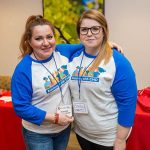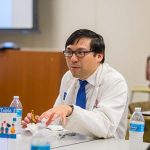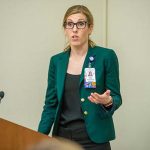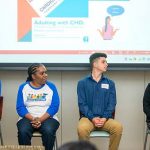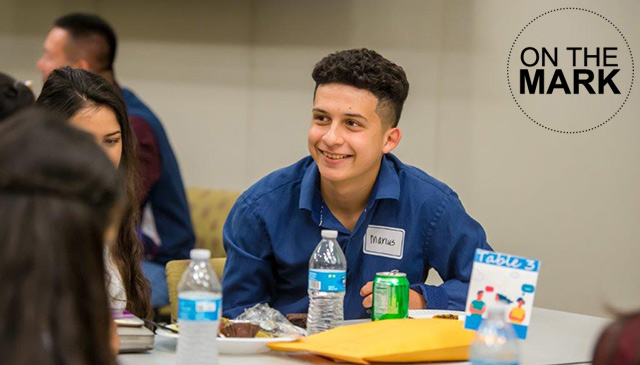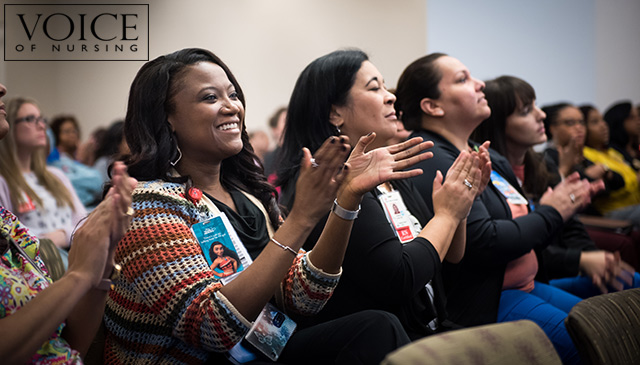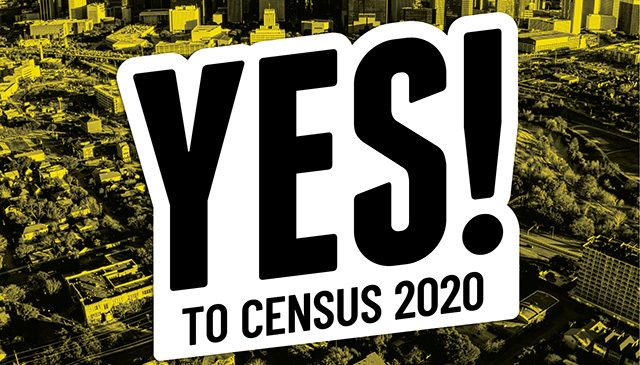
This March is National Nutrition Month, which is a great time to revisit those healthy resolutions you made at the beginning of the year and also learn some different ways to easily incorporate healthy options into your day-to-day routine.
To celebrate this occasion, your Employee Health and Well-Being team invites you to participate in the My Nutrition Challenge, a four-week event that will allow you to have some fun, learn some simple recipes for tasty and nutritious meals, and maybe even win a prize.
Challenge details
My Nutrition Challenge takes place beginning Monday, March 2, through Friday, March 27.
Upon registration, participants will receive a tracking form that will help them stay on top of their progress, as well as weekly motivational tips to help keep them on course
Participants who complete the post-challenge survey will receive a cutting board.
At the end of the challenge, participants who submit a success story will also be entered into a drawing for a chance to win a Ninja blender.
Additional information about the challenge is available on our new Well-Being page on Connect.
Interested in the My Nutrition Challenge? Click here to register!
Self-Care classes available
In addition to the challenge, our Well-Being team and dietitians from Texas Children’s are working together to bring you a variety of events across many of our locations during National Nutrition Month. Below is a full listing.
Medical Center
All classes are held on Thursdays from 1 p.m. to 1:30 p.m., at the Well-Being Studio, West Tower, 20th floor.
March 5: Yoga for Digestion
March 12: Meal Prep
March 19: Spiritual Detox
March 26: Mind-Gut Connection
Group Nutrition
Join our well-being dietitian as she gives additional tips and guidance every Monday during the challenge from 11 a.m. to 11:30 a.m., at the Well-Being Studio, West Tower, 20th floor.
My Plate Event
Thursday, March 26, 10 a.m. to 1 p.m., The Auxiliary Bridge
Health Plan
My Nutrition Challenge Event
Wednesday, March 4, 1 p.m. to 4 p.m., Conference Room, Basement Level
The Woodlands
How to Meal Prep
Tuesday, March 10, 11:15 a.m. to 11:45 a.m., Conference Room A
Register here (skype option also available)
Yogurt Social
Wednesday, March 27, 7:30 a.m. to 9 a.m., Lobby, Donor Wall
West Campus
“Bite by Bite” Table Event
Wednesday, March 18, 11 a.m. to 1 p.m., Corridor outside DOTS Kitchen
Yogurt Social
Wednesday, March 25, 2:30 p.m. to 3:30 p.m., Fifth-floor ballroom
Specialty Care Cy-Fair
Nutrition Table
Thursday, March 5, 9 a.m. to 11 a.m., Lobby
Resources to support your nutrition
All Texas Children’s employees, including our valued team members working outside of the Houston area, are eligible for a variety of well-being programs at no cost. This includes:
- Health Coaching – provides you with a positive and personalized experience to help you achieve your well-being goals.
- Nutrition Consulting – work with a dietitian to help fuel your body with the proper nutrients needed to reach your well-being goals.
- Discounted Services – receive reduced monthly membership rates, waived enrollment fees and discounted services from all of our well-being partners.
For more information on these resources, please contact our Employee Medical Clinic at 832-824-2424 or email our Well-Being team at wellbeing@texaschildrens.org.
Let’s amplify unity among our colleagues and encourage each other to Eat Right, Bite by Bite!



